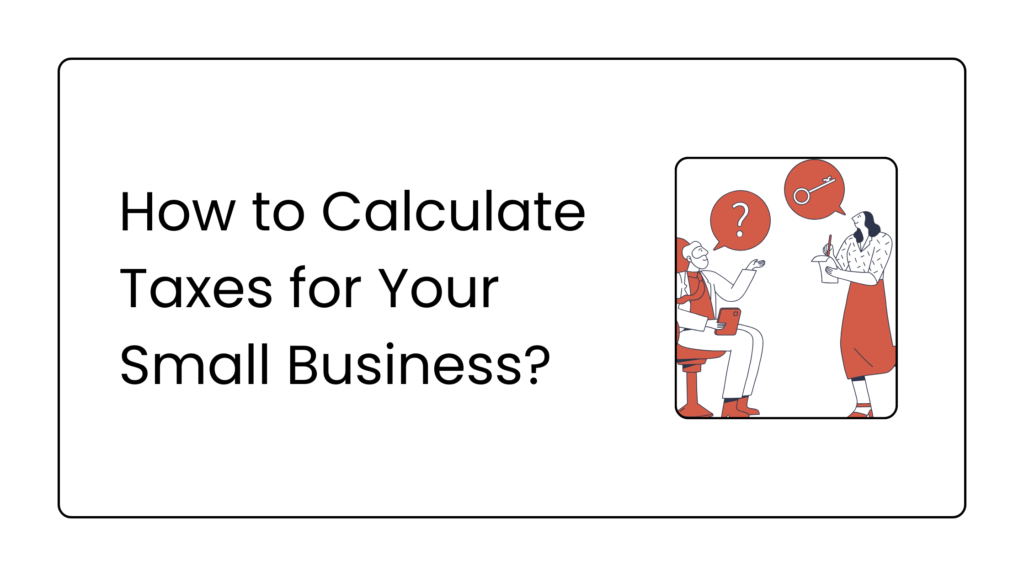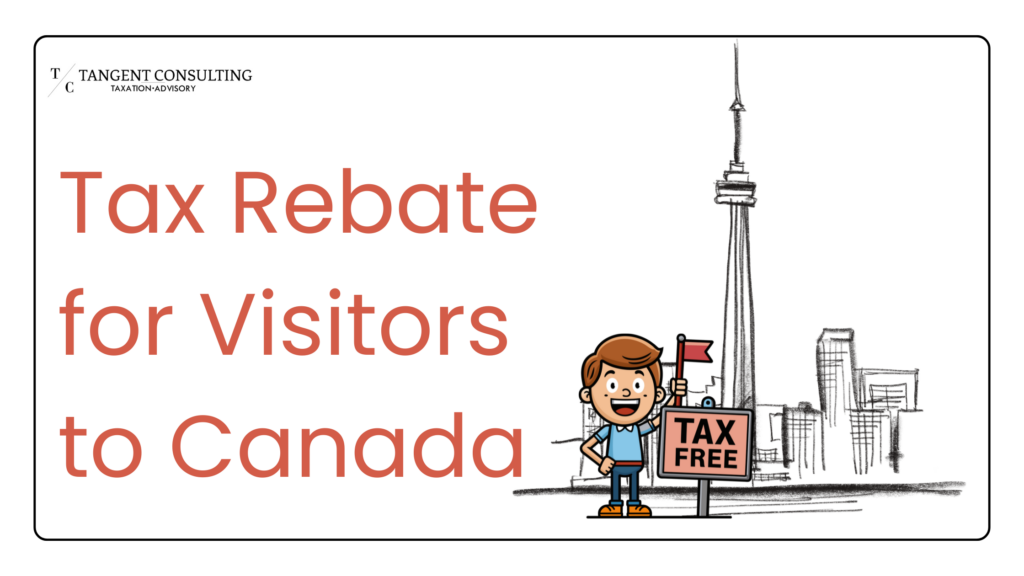
Understanding Small Business Tax Planning in Canada
Table of Contents
ToggleThe Significance of Tax Planning
Let’s start with the basics. Taxes can be one of the most substantial expenses your business faces, and effective tax planning can significantly impact your bottom line. By minimizing your tax liability, you can increase your profitability and reinvest in your business. More money for you, less for the taxman. Sounds good, right?
Choosing the Right Tax Status
Business Structure Options in Canada
In Canada, when you start a business, you have several choices about how to legally structure it. Each option comes with its own tax implications, so it’s important to understand them. Here are the main structures you can consider:
- Sole Proprietorship: This is the simplest way to run a business. You’re the boss, and you report your business income on your personal tax return. It’s easy to set up, but you’re personally responsible for all business debts and liabilities.
- Partnership: If you’re starting a business with someone else, you can form a partnership. You and your partner(s) share the business’s income, expenses, and responsibilities. Partnerships are also reported on personal tax returns.
- Corporation: A corporation is a separate legal entity from its owners. It can enter contracts, own property, and pay taxes on its income. Shareholders (owners, like you) are not personally liable for the company’s debts. Corporations have complex tax rules, but they can also offer tax advantages.
- Limited Liability Company (LLC): In some provinces, you can create an LLC, which combines the liability protection of a corporation with the flexibility of a partnership. LLCs have their own tax rules.
Tax Status Change Considerations
Changing your business structure, like switching from a sole proprietorship to a corporation, can impact your taxes. Here’s what to consider:
- Tax Savings: Corporations, for example, have their own tax rates, which can be lower than personal tax rates. If your business is making a significant profit, incorporating could save you money.
- Complexity: With great power comes great responsibility! Corporations come with more paperwork and administrative responsibilities. You’ll need to maintain separate financial records and file a corporate tax return.
- Personal Liability: If you’re concerned about personal liability for business debts, incorporating can protect your personal assets.
- Consultation: It’s crucial to consult with a tax professional or accountant before changing your business structure. They can help you weigh the pros and cons and guide you through the process.
Maximizing Deductions for Canadian Small Businesses
Overview of Tax Deductions
Tax deductions are like money-saving tools for your business. They reduce the amount of income you have to pay taxes on. Here’s what you need to know:
- What Are Deductions?: Deductions are business expenses that you can subtract from your income when calculating your taxes. For example, if your business made $50,000 in revenue but spent $10,000 on supplies, your taxable income is $40,000.
- Why Deductions Matter?: Deductions can significantly lower your tax bill, leading to more money in your pocket. They can include a wide range of expenses related to running your business.
Key Deductions for Canadian Small Businesses
1. Office Expenses
Imagine you run a small online clothing store from a rented space in your home. You use one of your rooms as an office, where you handle orders, respond to customer inquiries, and manage your website. Here’s how office expenses and deductions work:
- Example: Let’s say your home office takes up 10% of your total living space. You pay $1,200 a month in rent or mortgage for your home. Your monthly utility bills (electricity, internet, water, etc.) amount to $300.
- Deduction: You can deduct 10% of your rent or mortgage, which is $120 per month, as a business expense. Similarly, 10% of your utility bills, which is $30, can also be deducted. Not too shabby, right?
2. Business Vehicle Expenses
To understand this deduction, let’s suppose you run a small landscaping business, and you use your pickup truck for jobs. Your truck is essential for transporting equipment and getting to job sites. Here’s how vehicle expenses and deductions work:
- Example: Over the year, you drove your truck 12,000 kilometres for business purposes. You spent $2,000 on gas, $1,000 on maintenance, and $500 on insurance specifically for your business.
- Deduction: You can deduct a portion of these expenses based on the percentage of your truck’s use for business. If, for example, 80% of your truck’s use is for business, you can deduct 80% of the total expenses. So, you can deduct 80% of $2,000 for gas, which is $1,600, and so on for maintenance and insurance.
3. Equipment and Depreciation
Suppose you own a small bakery, and you recently bought a brand-new industrial oven for $10,000. Here’s how equipment depreciation and deductions work:
- Example: The oven has a useful life of approximately 13 years (Class 8 with a CCA rate of 20%), according to the Canada Revenue Agency (CRA) depreciation rules.
- Deduction: Instead of deducting the full $10,000 in the year you bought it, you can deduct a portion of it each year. This is called depreciation. So, you can deduct 20% each year for the next 13 years. After 13 years, the remaining balance would be less than $200.
4. Travel Expenses
Let’s say you’re a consultant who travels to different cities to meet clients. Here’s how travel expenses and deductions work:
- Example: You took a business trip to Toronto for two days. Your plane ticket costs $500, and you spend $300 on meals, $200 on accommodation, and $50 on transportation within the city.
- Deduction: You can deduct all these expenses related to your business trip. So, the total deduction for this trip would be $500 + $300 + $200 + $50, which is $1,050.
5. Marketing and Advertising
Suppose you own a small cafe, and you run ads on social media to attract more customers. Here’s how marketing and advertising expenses and deductions work:
- Example: You spent $1,000 on a social media advertising campaign and $500 on printing flyers to promote a special event at your cafe.
- Deduction: You can deduct the full amount of these marketing expenses, which is $1,000 + $500, totalling $1,500.
6. Interest and Bank Charges
Suppose your small tech startup has a business loan, and you also use a business credit card for expenses. Here’s how interest and bank charges deductions work:
- Example: You paid $800 in interest on your business loan and $200 in credit card fees over the year.
- Deduction: You can deduct the full amount of these interest and bank charges expenses, which is $800 + $200, totalling $1,000.
We hope now you know how you can deduct various expenses related to your small business in Canada, helping you save money on your taxes. Remember to keep accurate records of your expenses and consult with a tax professional to ensure you’re maximizing your deductions within the rules and regulations.
Leveraging Tax Credits for Canadian Small Businesses
Tax credits can be a valuable tool for Canadian small business owners, helping them reduce their tax liability. There are two main types of tax credits you should be aware of:
- Refundable Tax Credits
- Non-refundable Tax Credits.
Refundable Tax Credits: These credits are like a cashback reward from the government. If the total amount of the credit is more than your tax liability, you’ll receive the excess as a refund. For instance, if you owe $2,000 in taxes but qualify for a $2,500 refundable credit, you’ll get a $500 refund.
Non-Refundable Tax Credits: These credits can reduce your tax liability to zero but won’t result in a cash refund if they exceed your taxes owed. Let’s say you owe $2,000 in taxes and qualify for a $2,500 non-refundable credit, You’ll owe no taxes, but you won’t receive the extra $500 as a refund.
Work Opportunity Tax Credit in Canada
The Work Opportunity Tax Credit in Canada is designed to encourage businesses to hire individuals from target groups that often face employment challenges. These groups might include veterans, persons with disabilities, or youth facing barriers to employment.
Example: Imagine you’re a small business owner in Canada looking to hire a disabled individual. By doing so, you can qualify for the Work Opportunity Tax Credit, which could provide a significant reduction in your tax bill. Get paid while promoting diversity!
Disabled Access Credit in Canada
This credit is for businesses that invest in making their premises more accessible to disabled individuals. Qualifying expenses might include installing ramps, wider doorways, or accessible washrooms.
Example: Let’s say you own a small restaurant and spend $10,000 to make your establishment wheelchair accessible. You can claim the Disabled Access Credit for a portion of these expenses, reducing your tax liability. This not only benefits your business but also helps create a more inclusive environment.
Health Insurance Credit in Canada
Providing health insurance for your employees is essential, and in Canada, you can claim a tax credit for employee insurance premiums.
Example: You run a small tech startup with 10 employees, and you pay a total of $20,000 annually for their health insurance premiums. You can claim a tax credit for this expense, which will reduce your overall tax bill, making it more affordable to provide essential benefits to your team.
Employee Retention Tax Credit in Canada
The Employee Retention Tax Credit was introduced to support businesses during challenging times, such as the COVID-19 pandemic. It’s aimed at helping businesses keep their employees on payroll.
Example: During the pandemic, your small retail store faced a decline in sales, and you were considering layoffs. However, with the Employee Retention Tax Credit, you were able to keep your employees on board, as the credit provided financial relief during this difficult period.
Important Business Tax Filing Dates in Canada
Staying organized and meeting tax deadlines is crucial for Canadian entrepreneurs. Here are the key dates you need to keep in mind for filing various types of business taxes in Canada:
- Sole Proprietorships and Partnerships:
- April 30: Personal income tax return due date.
- June 15: Extended deadline for self-employed individuals to file their personal income tax return.
- Corporations:
- End of February: Deadline for corporations to file their corporate tax return. This date can vary depending on your specific fiscal year-end, so check with the CRA for your specific due date.
- GST/HST Returns:
- Quarterly or Annually: GST/HST returns are due at various times throughout the year, depending on your filing frequency. Ensure you know your specific reporting schedule to avoid late filing.
- Payroll Tax (If You Have Employees):
- Payroll tax deadlines can vary depending on your specific payroll schedule and location. Be sure to comply with your province or territory’s payroll tax requirements.
It’s important to note that tax deadlines can vary based on factors such as your business structure, fiscal year-end, and location. Always double-check with the Canada Revenue Agency (CRA) or consult a tax professional to ensure you’re meeting your specific tax obligations and deadlines.
Please keep in mind that tax laws and deadlines may change, so staying up-to-date with the latest information from the CRA is essential for accurate tax filing.
When is the deadline for filing my personal income tax return in Canada?
The deadline is typically April 30, but if this date falls on a weekend or holiday, it may be extended to the next business day. Be sure to file on time to avoid late filing penalties.
Can I file my personal income tax return online in Canada?
Yes, you can! The Canada Revenue Agency (CRA) offers an online filing system called NETFILE, making it convenient and efficient to file your taxes electronically.
What deductions can I claim as a small business owner in Canada?
You can claim various deductions, including business expenses, marketing costs, office supplies, and more. Consult with a tax professional to ensure you’re taking advantage of all eligible deductions.
How can I reduce my tax liability as a Canadian entrepreneur?
Consider tax-efficient strategies like income splitting, maximizing deductions, and taking advantage of tax credits. These can help minimize your tax bill while staying within the bounds of the law.
Should I hire a tax professional for my small business in Canada?
It’s highly advisable. Tax laws can be complex, and a tax professional can help you navigate them, maximize your deductions, and ensure accurate filings, ultimately saving you time and money.


